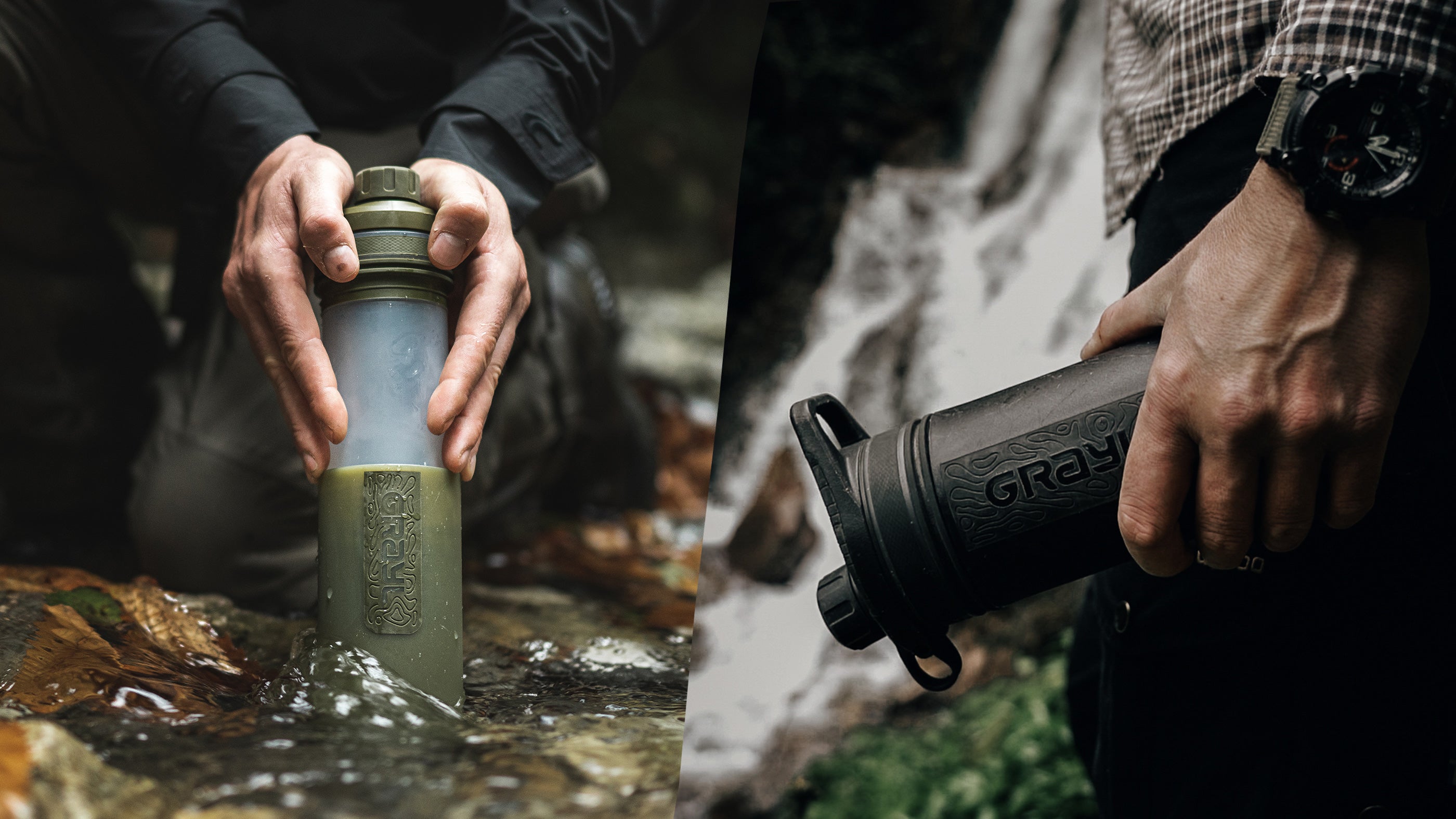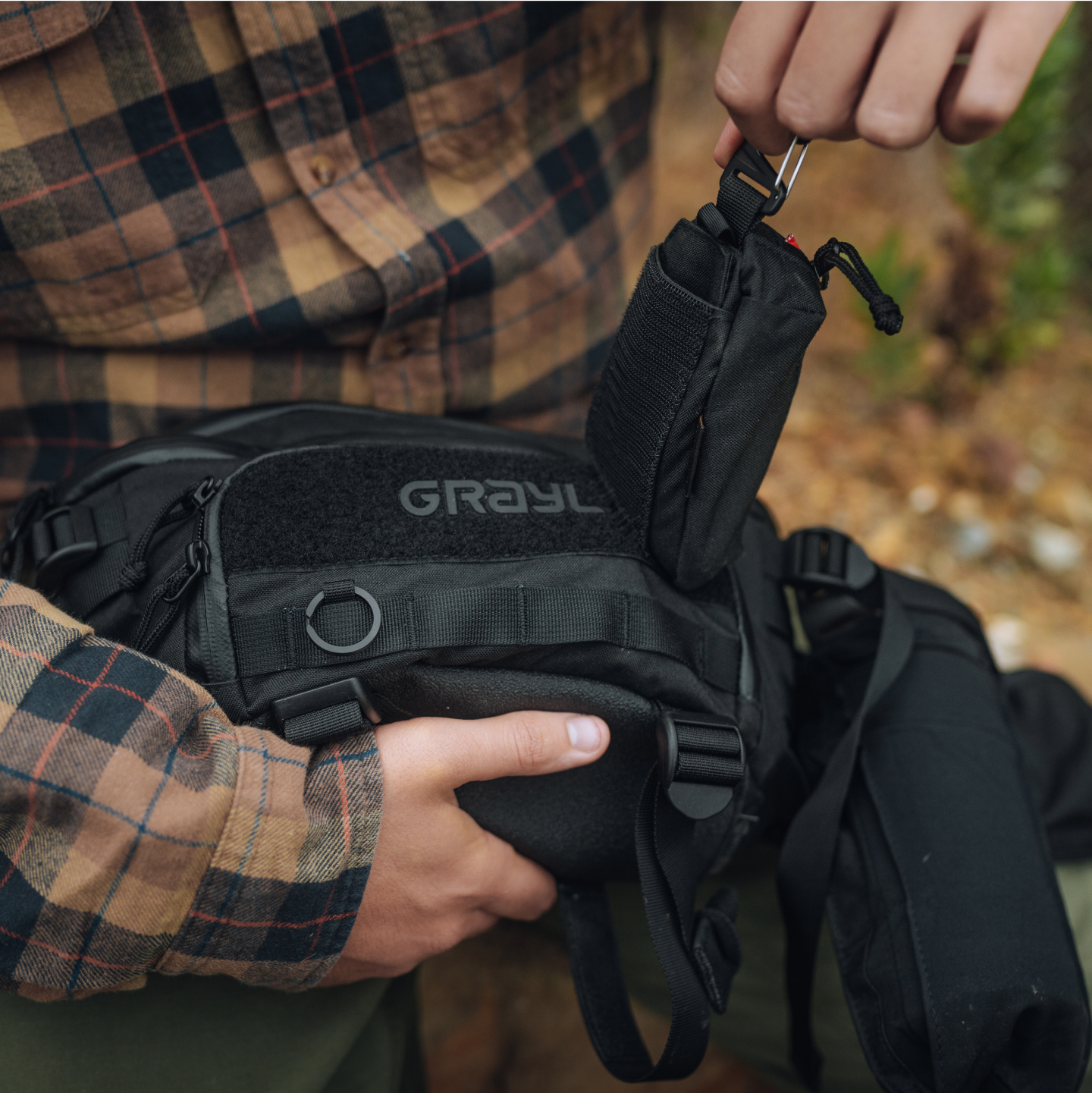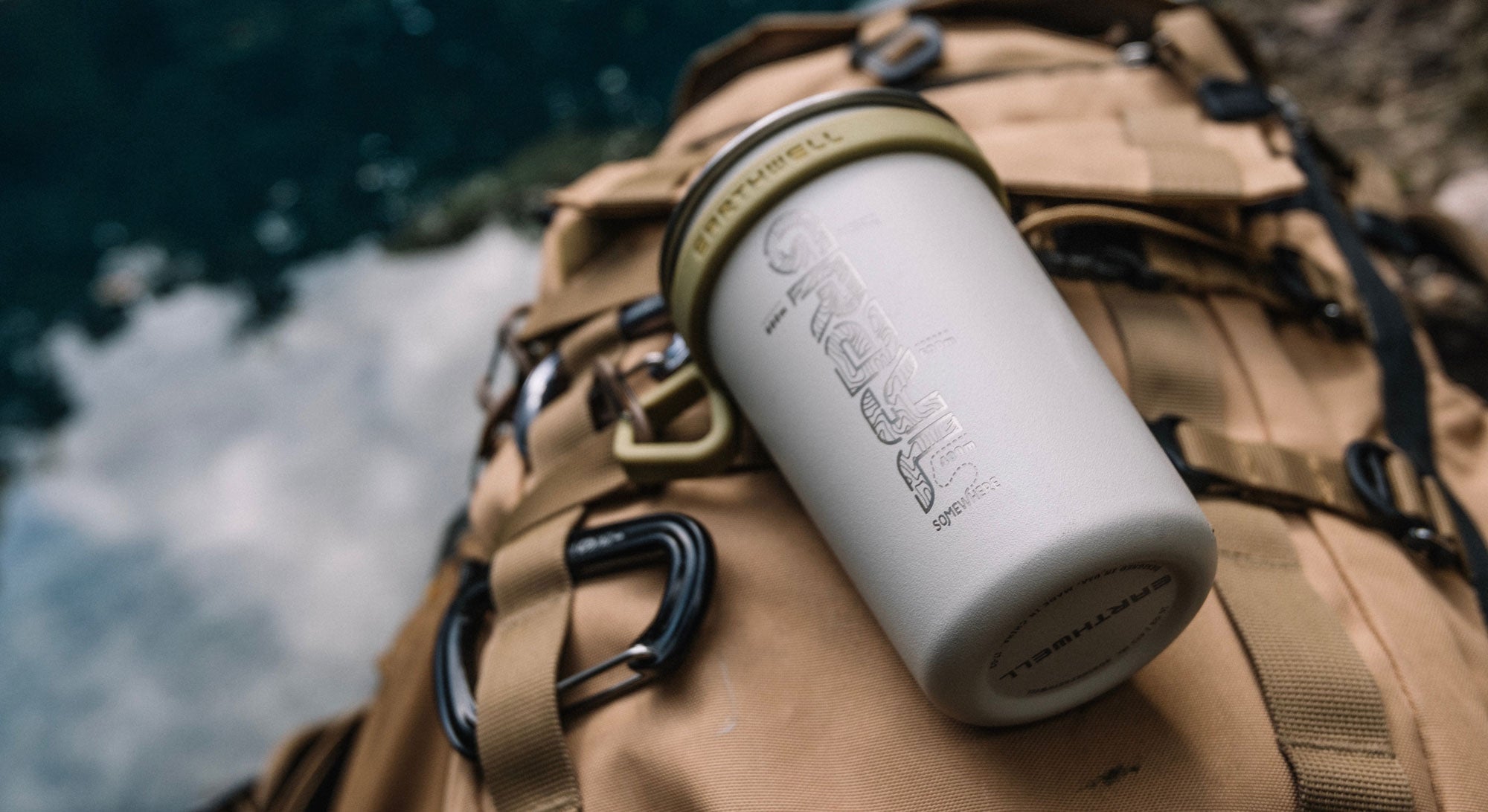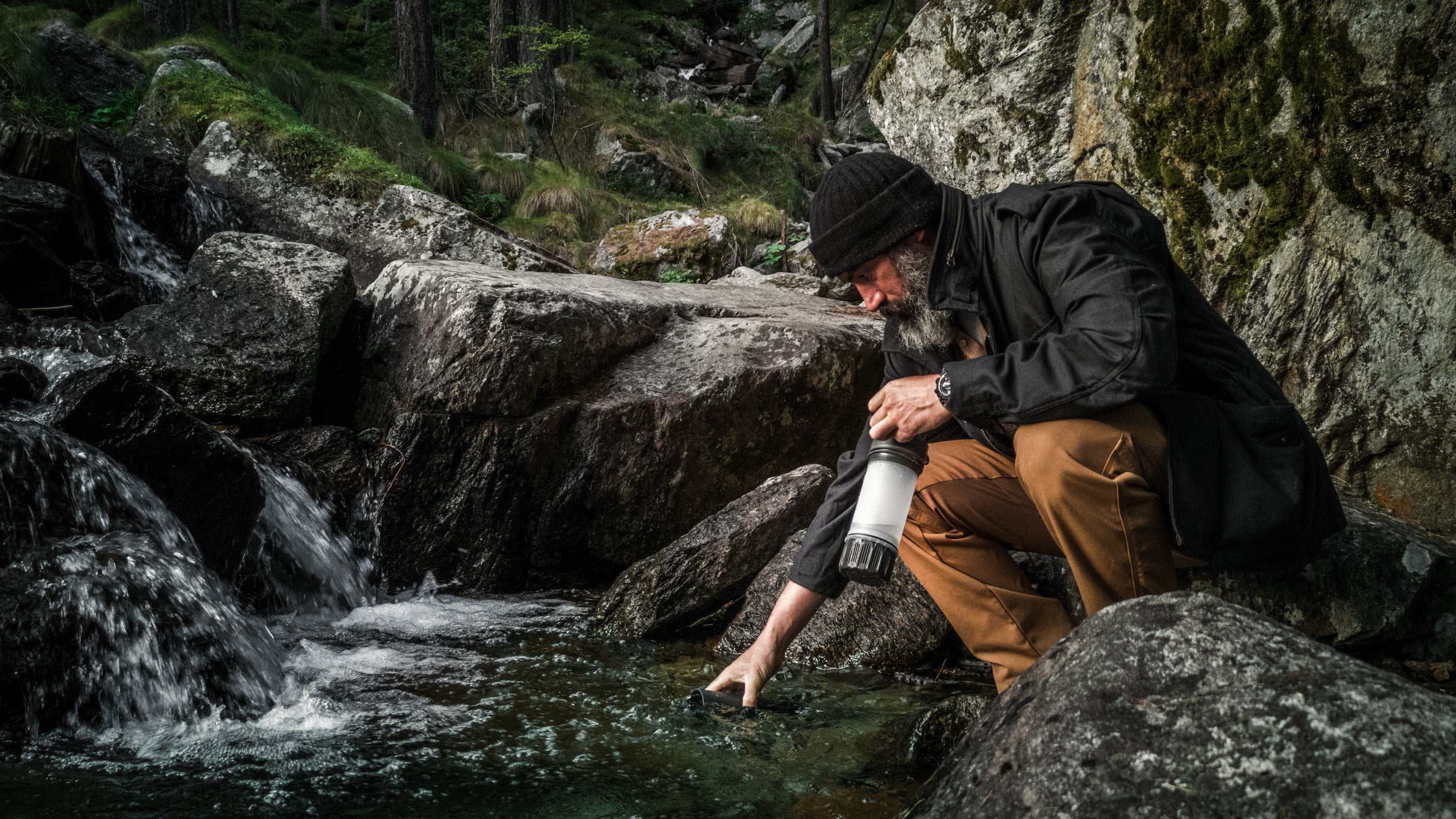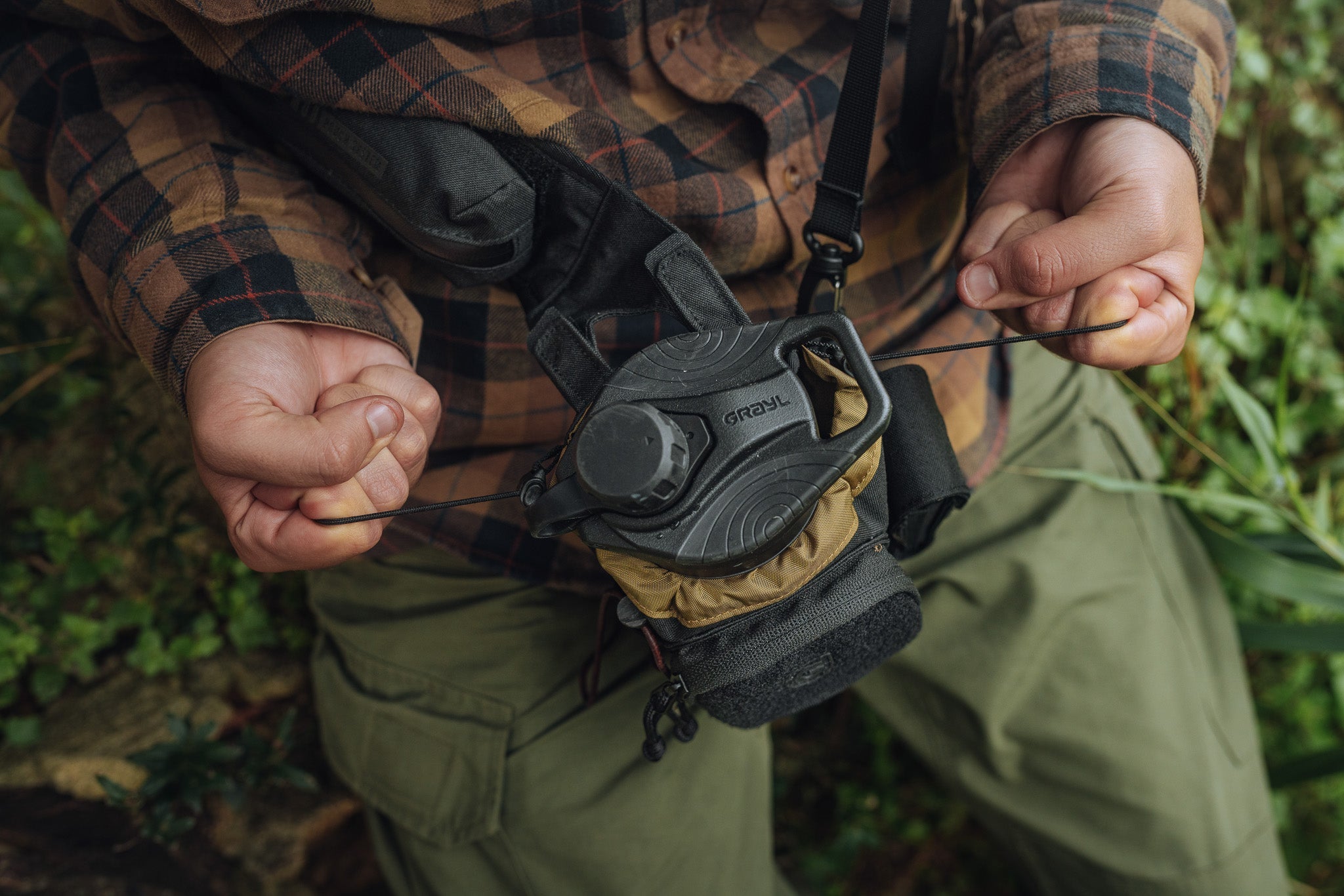Mountaineering Pakistan with Covert Black

Photography: @chrislininger
Where do you call home? Interesting question for me. Over the last few years, I have split my time between Pakistan, France, Portland, Oregon, and Bali, Indonesia when I have not been traveling full time. During the COVID-19 pandemic, I based myself in Bali and the island very much came to feel like home. When I am in the USA, it is Portland, Oregon. Mostly, home is a fluid situation involving the contents of my backpacks. Currently, I am speaking from a rented apartment in Islamabad, Pakistan in between adventures.

Mostly, home is a fluid situation involving the contents of my backpack.
Tell us about your passions and what fuels them? I have always been a curious person. Learning, pushing myself to my physical limits in the mountains, photography, climbing, climate justice, coffee, food— these are some of my strongest passions. You could say being a coffee enthusiast is all you really need to know about me.
When I started working in the travel industry as a staff writer for a successful adventure travel blog, I felt like I had a chance to channel my passions into something meaningful that could help others do the same—essentially to travel and hike the world responsibly and on a budget. I was able to write about the fun and weird places I was exploring and actually make a living at it.
Since then, photography has been a seriously motivating factor for my tour and travel projects. Photography is so interesting to me because it helps me to capture these moments—these little slices of life that no one else would even hear about or think about—in the remote corners of the earth.
In combination with photography projects, leading group adventure tours in Pakistan is also very special for me. It shatters negative stereotypes people have about a country like Pakistan and shows people a side of the country they could only dreamed about previously. Not saying that Pakistan is perfect—but to see the look in the eye of people who visit it for the first time—well, let’s just say that feedback loop fuels my passions big time.
Photography is so interesting to me because it helps me to capture these moments—these little slices of life that no one else would even hear about or think about—in the remote corners of the earth.

What was your childhood like? Ah ha! The childhood question. My childhood was a very positive experience for the most part. My parents were always very supportive of what I was interested in and they definitely helped push me to be the best version of myself—even if when I was a teenager all I wanted to do was film skateboarding videos, smoke weed, and hang out with my mates.
My younger sister had severe mental disabilities and handicaps, so growing up with a sibling like that definitely affected me in a multitude of ways. Inherently, it was not always easy. Looking back now, one of my biggest takeaways has to be to never take anything in life for granted. Some people are given the keys to the castle of life so-to-speak whilst others are shortchanged. My sister was short changed with her mental limitations from birth, and still she always did her best despite the great disadvantages life bestowed upon her from the start. After she passed away in 2010, I think I was motivated to challenge myself and to lead my best life even more. I guess it gave me the mental green light to honor her by doing all of the things she could never physically or intellectually do—as a nod to her memory, like “hey girl, you are right out here with me having these experiences”.
...After she passed away in 2010, I think I was motivated to challenge myself and to lead my best life even more. I guess it gave me the mental green light to honor her by doing all of the things she could never physically or intellectually do—as a nod to her memory, like “hey girl, you are right out here with me having these experiences”
What were the early inspirations that led you into international adventuring and mountain activities? I have always loved the mountains. Probably because I grew up in the suburbs there was always a great curiosity of the world beyond cookie-cutter houses and manicured green lawns.
I would say that curiosity launched me out into many years of solo travel and long-distance backpacking around the USA, South/Central America, Nepal, New Zealand, Europe, etc. From there I knew that exploring —I mean really exploring—was something that was important for me to do. To scratch that itch of curiosity of different cultures and wild places, facing risk and reward, and to seek the grandest stages with the best light for photography, and I found that in the Karakoram.
Reading stories of the great adventurers before me was also an inspiration. I am a big history nut in general so reading was my gateway to past inspirations in a huge way. Also, shout out to Dan Carlin’s Hardcore History podcast for those of you have never heard of it!
As a kid in my early 20’s, reading about Hillary’s ascent of Everest, Shackelton’s misadventures in the Antarctic, keeping tabs on modern explorers like Mike Horn, Tommy Caldwell, Alex Honnold, etc , and the various geo-political power struggles from the last three centuries—all of this lit a fire under me big time to get out and have my own experiences. This unique blend of stuff that attracts me has manifested in an equally interesting way.
I have always loved the mountains. Probably because I grew up in the suburbs there was always a great curiosity of the world beyond cookie-cutter houses and manicured green lawns.

You are out there climbing big mountains and doing it far from home. Can you tell us more about the motivations behind these types of expeditions for you? I was never the kind of person who could go to Thailand for 2-weeks a year, sit by the beach drinking beer, and call that a vacation (well maybe the beer part). For some reason, my way to decompress, relax, and to feel most alive is indeed to go out on a hectic expedition and push myself in the big mountains.
I’d say another big motivation is to share my experiences with others and inspire them to do the same sort of stuff. I get many messages into my inbox from people who have a similar interest in exploring, getting off the beaten path, climbers, backpackers, etc., who want to be doing the same kind of things, but don’t exactly know where to begin, which I totally get. The shit can be hard to figure out and can be very intimidating for people with limited experience.
I’d say that desire to motivate and inspire other people to go on big, unique, fulfilling adventures led to the founding of Epic Backpacker Tours with my good friend and business partner Will Hatton.
For some reason, my way to decompress, relax, and to feel most alive is indeed to go out on a hectic expedition and push myself in the big mountains.
How do you go about selecting the tools and equipment that make it into your expeditions? This process has taken years for me to dial in to be honest. I take a lot of different stuff for a lot of different purposes.
It has been trial and error for the most part but once you get a few experiences under your belt you begin to understand what sort of gear is useful and what is not. If you are not using it everyday, it is probably not necessary. But I also learned that being truly prepared gives me a solid peace of mind.
I go through a mental checklist as anyone does who works with logistics. I know I have all of my emergency medical supplies, I know my clothing is warm enough, I know my sleeping bag will keep my cozy and safe at night, I am confident in my climbing equipment for the given project, and of course I know my clean water source is sorted with the Grayl Geopress. This all helps to alleviate a lot of unnecessary worry that could otherwise irritate my mind (and time), especially when I am leading groups of clients.
Chris walks us through the best way to keep your GeoPress Purifier from freezing in the harsh elements.
What led you to Grayl and why GeoPress? To be honest, I do not remember how I had the good fortune to stumble across Grayl. Because of my work as brand partnership manager for The Broke Backpacker blog, I am always on the lookout for good outdoor gear companies and their equally badass products.
One day I found the Grayl, and the products I subsequently discovered have significantly altered how I travel/backpack, how I plan expeditions, and crucially how I actually help to reduce my plastic footprint in a world when I am constantly surrounded by dirty water sources and an endless amount of single-use plastic water bottle temptations, which I see as a sort of devil-offering-Eve-the-apple sort of thing.
The other main water filter I have used in the past is the Sawyer Mini, which I used on my Appalachian Trail thru-hike in 2015. While for the most part, this filter did it’s job, to be frank, it was a pain in the ass to use . It was so, so slow and all said, I probably spent an entire day’s worth of time just filtering water over the course of the months I was hiking the AT. Plus the reservoir pouch broke a few times. Being a dirtbag hiker at the time, I was like “Well, this is just how it is” and I dealt with it. When I discovered the GeoPress, it was game over. Let’s just say I have not used a Sawyer Squeeze in 4 years.
Likewise I have had similar negative experiences with the LifeStraw. I love the concept, hate the reality. I had probably used the LifeStraw across a dozen countries before I was told that the filter does not actually purify the water. It just does a basic filter without removing many of the harmful things lying in wait in the water. No wonder I was sick a few times. For international adventure, the product just did not do what the marketing team at Lifestraw tried to make you believe it could do.
My LifeStraw graveyard was opened in 2016.
When I discovered the GeoPress, it was game over. Let’s just say I have not used a Sawyer Squeeze in 4 years.

Did we nail it with Covert Black? Whilst I love the other GeoPress colors, I think my favorite version so far is the Covert Black. When Grayl first came out with the Covert, in my head I was sure I was reading Cobra Black, so from then on I thought, “Cobra Black, an interesting choice. Cool.” haha.
I am not typically one who cares too much about the color of something like a water bottle, I am more about the practicality and functionality. Then I started looking at my other gear (my camera bag, cube, camera, gimbal, lenses, gaiters, down jacket —everything else was black), so then I was like “hmm well I guess Grayl just made the perfect water bottle for my style.” Johnny Cash would be proud guys —cheers for that.
When I find myself plunging my Covert Black Geopress into a freezing river, I appreciate the way the water beads mingle with the black color off the side and how the light reflects off of it the same way. It gives off this tone I sort of associate with motorcycles after a rain or a carbon knife sitting on wet leaves. I am like “Yeah, I guess I am a Covert Black guy now. This thing is badass.”
 24oz GeoPress® Ti
24oz GeoPress® Ti
 24oz GeoPress®
24oz GeoPress®
 16.9oz UltraPress® Ti
16.9oz UltraPress® Ti
 16.9oz UltraPress®
16.9oz UltraPress®
 Digital Gift Cards
Digital Gift Cards
 Backpacks
Backpacks
 Hip Packs
Hip Packs
 Bottle Slings
Bottle Slings
 Tote Bags
Tote Bags
 G-Mod Accessories
G-Mod Accessories
 Packing Pouches
Packing Pouches
 Apparel
Apparel
 Hats
Hats
 Titanium Coffee Press
Titanium Coffee Press
 Titanium Cook Lid
Titanium Cook Lid
 Titanium Stove
Titanium Stove
 Titanium Campware
Titanium Campware
 Steel Drinkware
Steel Drinkware
 GeoPress® Nesting Cup
GeoPress® Nesting Cup
 Adjustable Bottle Cage
Adjustable Bottle Cage
 Cartridges
Cartridges
 Caps
Caps
 Inner Press
Inner Press
 Outer Cup
Outer Cup
 Bundle & Save
Bundle & Save




